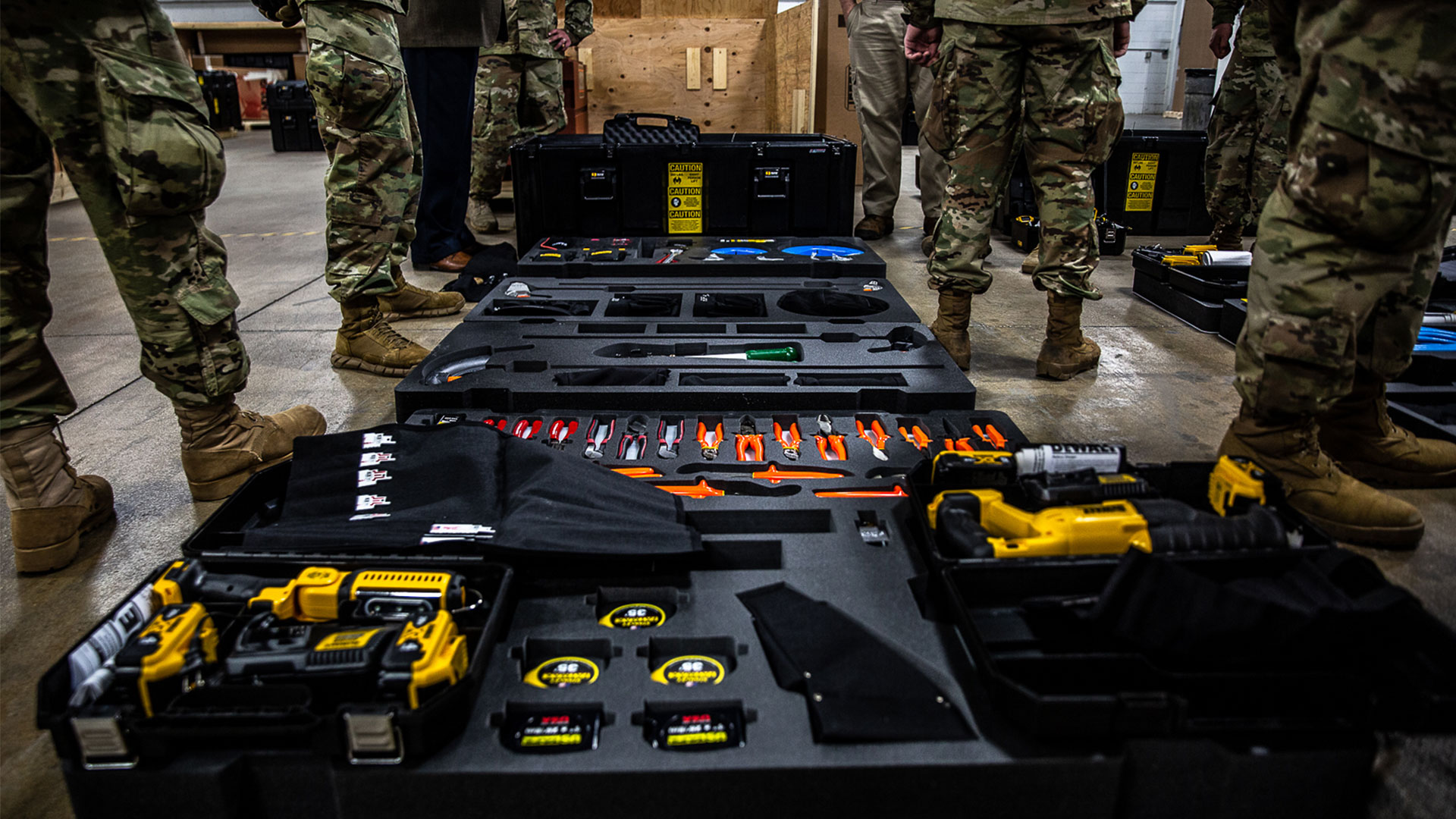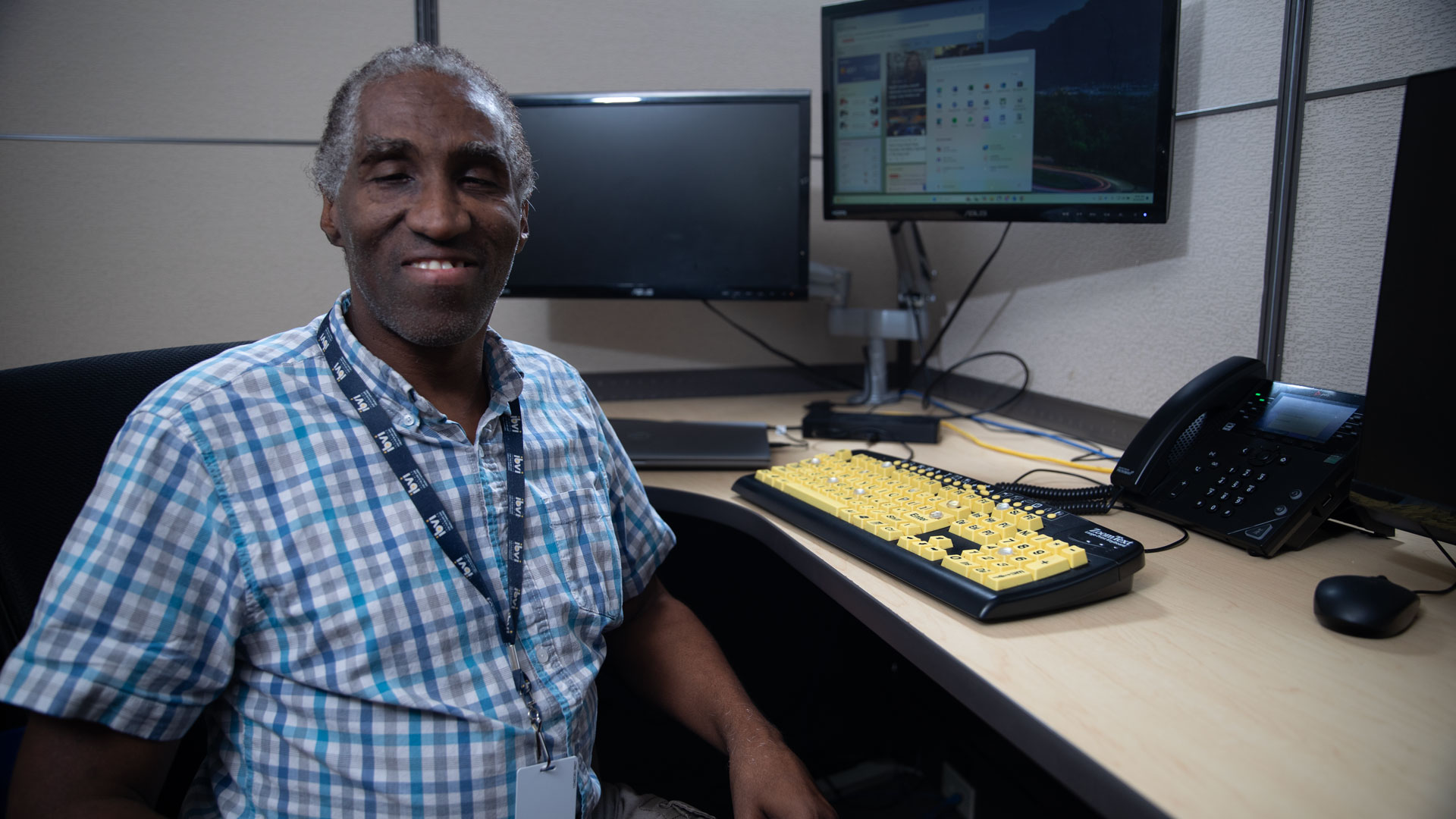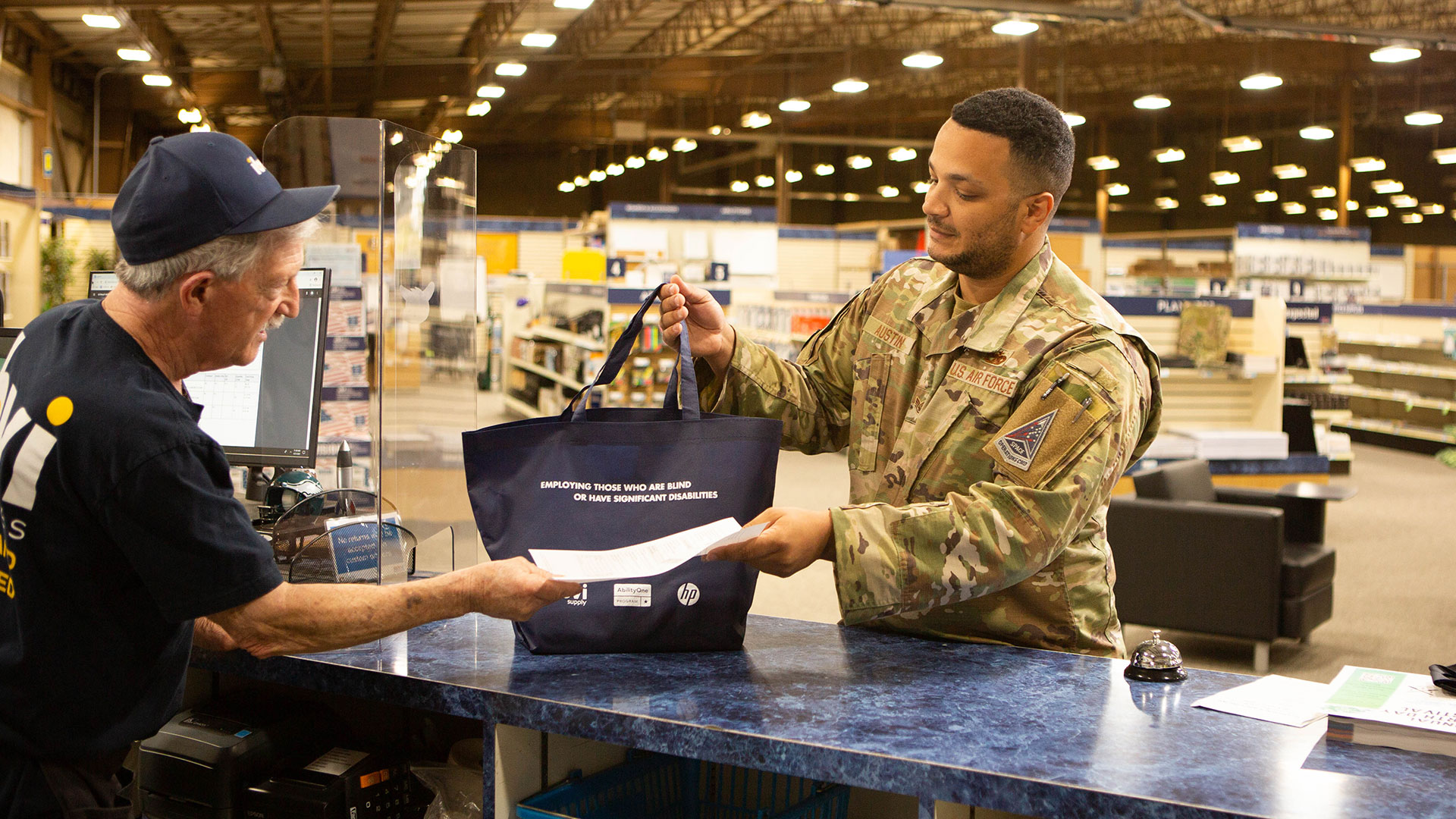At IBVI, we’re proud to work with the US Armed Forces on mission-critical supply projects. A great example of a crucial partnership we have is our kitting program with the US Army. In honor of the Army’s birthday on June 14th, we wanted to give a look into that relationship and how we’ve been able to support them year after year. We asked our Government Programs Operations Director, Jeff Martinelli, to tell us more about it.
We’ve done multiple kitting programs for the US Army—four to be exact—each of which include custom kits to help the military complete missions: everything from construction, evidence collection, and more. Recently, we renewed our contract for more VSECK (Vertical Skills Engineer Construction Kits). This is the largest AbilityOne® product contract ever awarded in the program’s 85-year history, and we’re quite proud of that accomplishment.
How long have you been partnering with the US Army?
Our relationship with the US Army goes back to 2013 when we completed our first kitting project for them, a program for MMTS (Machinist Measuring Tool Set) kits. Though it was a smaller kitting project than VSECK, the feat itself was no small task. There were many details to keep track of, and our hard work and diligence caught their attention.
Typically, the military sets these types of kitting assignments aside for small businesses to manage. However, they decided to work with us thanks to the mutual connection we shared with National Industries for the Blind (NIB). By working with us, the Army was also able to support the AbilityOne program—a US mandate to support disability employment through government agency funding—so it was a meaningful decision for all involved.
What is it like working with the US Army?
The Army has been a great partner. They have many requirements to meet and their work is very precise, and with good reason. They’ve been doing this for a long time, so they know what works (and what doesn’t work) in the field. They also continue to be very responsive and maintain great communication from start to finish on each program.
One of the advantages of the government using the AbilityOne program (versus putting out solicitation for small businesses) is that they can truly partner with each nonprofit organization to work through any issues or challenges that may arise. When working with small businesses, the process isn’t as involved. Thanks to our shared connection through AbilityOne, we were able to form a close working relationship with them and we’ve been building upon that ever since. That’s something we’ll always hold dear and be truly grateful for. And, given they provided us a renewal on our contract, it’s safe to say the feeling is mutual.
Tell us more about the Vertical Skills Engineer Construction Kits (VSECK) project. Why is it important and how did the process go?
Most of the previous kitting projects we’ve worked on had a single kit type involved, but with the VSECK program, there are six types of tool kits we put together. These were designed to help carpenters, electricians, masons, plumbers, and pipefitters.
Each kit type is handled as an individual project. There are a lot of requirements and specifics—around 80 pages for each kit— to manage. For example, the first run we completed didn’t have the correct layout for tools in each kit. We actually had to go back and redesign a few because they exceeded the set/acceptable weight limit. That weight limit is important because the kits are considered soldier-portable, meaning they have to be carried by soldiers. It’s important they’re done right, both for the safety of the soldier and the durability of the kit.
While all the details make the project massive in scope, our employees are very proud to be able to put together these complex, specialized kits for our troops. It makes it all the more important that we meet each detail and get the job done right.
What other challenges did you encounter while completing the project?
There were several unforeseen challenges along the way that we were able to overcome with the VSECK project, many of which started early in the design process. Requirements for product validation testing were described in detail over multiple pages, including all casing specifications and necessary testing procedures that would need to be completed.
We obtained quotes for these tests once we were able to communicate the required standards to the engineering/testing facilities we found. Luckily, two of these facilities were located in the Milwaukee area, but one of them could only quote for half of the required testing due to its size limitations. This was difficult because the large-sized cases requested for the kits required us to find additional testing centers and equipment capable of accommodating them. Modifications to the government’s specifications were then requested by our team so we could get things underway. Thankfully, the Army was incredibly cooperative throughout the process.
For example, the testing process itself involved providing a 15-day notice to the government for any scheduled testing, giving them the option to witness it in person, if need be. Some tests were attended by government personnel while others were not. Usually, they chose not to attend when using a third-party company for tests. When additional testing was required due to the updates and changes with the kitting design and requested specs, there were some scheduling conflicts with travel, etc. Due to the COVID-19 pandemic, many of these tests were able to be attended by the government virtually or from a remote location, and that ended up being a beneficial backup option to work with.
How did the Army think the project went? Did you receive any direct feedback?
Overall, our work on the program received high ratings and positive feedback from the government. In fact, the VSECK program has been used as an example to follow in various training sessions, which highlighted our reliability and trustworthiness as a contractor. Our proactive approach to problem solving and our effective communication with the government were highly praised.
Further, positive annual Contract Performance Assessment Reports (CPAR) have been given to IBVI in each of the projects we’ve completed, and these are indicated by the high ratings and positive feedback we’ve received once the programs were completed/fulfilled. That’s something we don’t take lightly, and we credit our staff and hardworking employees for their hard work and dedication to each assignment we’ve been given.
How does it feel participating with these programs and partnering with/supporting the US Army?
The work we’ve been able to accomplish is really something special, and it only adds to the strong sense of pride and deep fulfillment I get when carrying out our mission here at IBVI. Partnering with the Army and being able to contribute to their work and their mission is an added bonus that’s really humbling. Supporting the Army has become a significant part of the work we do, and it means so much to all of us.
One of my favorite examples of this came unexpectedly during the COVID pandemic when our kitting program/capabilities were called upon to help in building the field offices used to support the Army’s rapid response efforts. Pre-pandemic, I would’ve never guessed we would be helping in that way, or that we’d be the ones providing kits for that type of work. To say that was a heartwarming and fulfilling experience would be a great understatement. That really meant a lot to us as a team, and it brought us all closer together.
It’s a humbling realization to know you’re providing essential resources that are going to support the warfighter’s ability to perform their duties and help accomplish their mission out in the field. It really adds to our own sense of purpose in the work we do here at IBVI. And that’s not just for the Army, but for other branches of the US Military, too. Our skills and kitting capabilities have helped them receive the infrastructure needed to get their jobs done. We consider these opportunities to be a great privilege and it’s amazing to be part of that process and to play such a significant role in supporting the military.
Contact us
IBVI is a certified nonprofit organization authorized by AbilityOne, a government program that aims to support the employment of people who are blind or have significant disabilities in the United States.
With our expertise in the requirements and standards used by the Federal Government and Armed Forces, IBVI is well-equipped to deliver exceptional results for those we partner with. We can design, source, and produce fully compliant, customized products and kits that cater to our customers’ specific needs—when they need them.
For more information, don’t hesitate to reach out.


